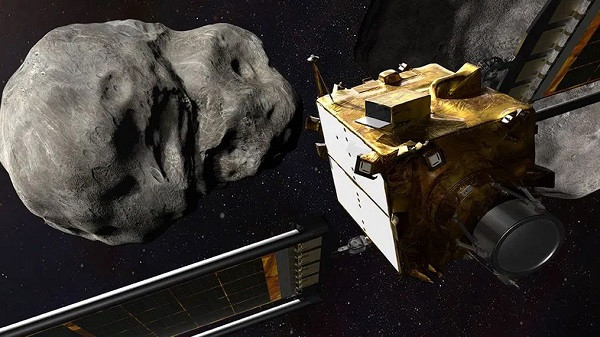NASA Monitors Close Approach of Potentially Hazardous Asteroid to Earth: 2023 LZ Under Surveillance

IIE Digital Desk : NASA is closely monitoring the trajectory of an asteroid known as 2023 LZ as it approaches Earth, raising concerns about its potential hazard. The space agency has been diligently tracking the celestial object to gather critical data and assess any potential risks associated with its passage.
Heightened Vigilance: NASA's Efforts to Safeguard Earth
As part of its ongoing mission to protect our planet from near-Earth objects (NEOs), NASA's Jet Propulsion Laboratory (JPL) has been meticulously monitoring the movements of 2023 LZ. This asteroid, classified as potentially hazardous due to its size and proximity to Earth, demands heightened vigilance and proactive measures to ensure the safety of our planet.
Tracking the Trajectory: Understanding the Risks
The precise tracking and analysis of 2023 LZ's trajectory allow scientists to determine the asteroid's potential for impact and its proximity to Earth. The gathered data helps experts assess the likelihood of a close encounter and evaluate the need for further observation and mitigation strategies.
Averting Potential Threats: NASA's Role in Planetary Defense
NASA's dedicated efforts in monitoring NEOs play a vital role in planetary defense. By identifying and characterizing these celestial objects, scientists can better understand the nature of potential threats and devise effective strategies to safeguard our planet and its inhabitants.

Collaborative Approach: International Cooperation in Asteroid Tracking
NASA collaborates closely with international space agencies and astronomical communities to share data and observations, fostering a collaborative approach to asteroid tracking. This global cooperation enhances the accuracy and reliability of predictions, ensuring a comprehensive understanding of the potential risks associated with near-Earth asteroids.
Public Safety and Awareness: Communicating the Findings
NASA remains committed to public safety and awareness by transparently communicating the findings and updates related to asteroid monitoring. By disseminating accurate information, the space agency aims to alleviate concerns and promote a well-informed understanding of the risks posed by celestial objects like 2023 LZ.
Continued Surveillance: Nurturing Scientific Knowledge
As 2023 LZ continues its approach, NASA's dedicated teams will continue to monitor the asteroid's movements, refine trajectory predictions, and assess any potential threats it may pose. The ongoing surveillance not only contributes to scientific knowledge but also reinforces NASA's commitment to protecting Earth from potential asteroid impacts.
While the current analysis indicates that 2023 LZ does not pose an immediate danger, NASA's vigilant tracking underscores the importance of ongoing efforts to monitor near-Earth asteroids and develop proactive measures to safeguard our planet and its inhabitants from potential cosmic hazards.
You might also like!
























